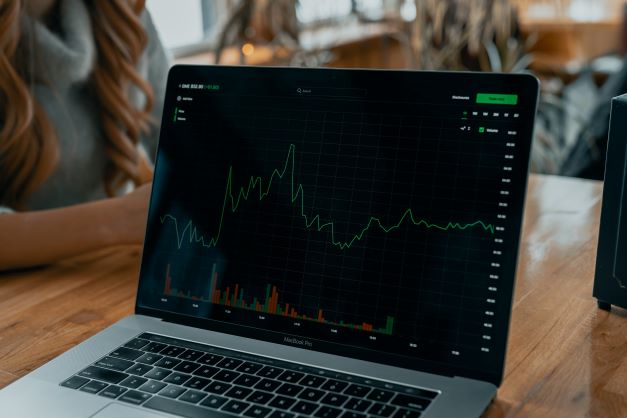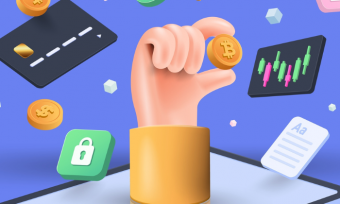Should you invest in Robinhood? This is a question many are asking since Robinhood debuted on the Nasdaq (under the ticker HOOD) recently. The stock trading and investment app has skyrocketed in popularity in the last year, and many will be excited at the prospect of investing in the company’s stocks.
Here in New Zealand, you are unable to use Robinhood as a trading platform but you are able to invest in the company itself. But does that mean you should?
In this article we cover:
What is Robinhood?
How can I invest in Robinhood
Things to consider before investing
What is Robinhood?
Robin Hood was a famous bow and arrow wielding outlaw who, as legends say, stole from the rich and gave to the poor. But that’s not the Robinhood we are talking about here …
He is somewhat relevant though.
Robinhood is a trading platform, founded in 2013 by Vladimir Tenev and Baiju Bhatt. They say it was built to “provide everyone with access to the financial markets, not just the wealthy”. Hence, Robinhood.
The free app allows users commission-free trades of stocks and exchange-traded funds and has grown to include cryptocurrency and banking.
Prior to Robinhoods release, it was common for other trading platforms to have minimum investment requirements and to charge every time a user made a trade. Robinhood felt these barriers were keeping out everyday people from investing.
The app grew in popularity during the COVID-19 pandemic as people stuck at home turned to amateur investing. Due to its low fees and simple, colourful interface, the app has been largely targeted at younger investors, with less capital. Those who traditionally have not been able to access the stock market easily, or have been largely ignored by other providers have found a home on Robinhood.

How can I invest in Robinhood?
This is important to clarify: you cannot use Robinhood the app to invest unless you have a US social security number. You can, however, invest in stocks of Robinhood, the company, itself. As mentioned above, Robinhood has gone public, meaning their stocks are open for people to buy.
Should you invest in Robinhood, you need a brokerage account. Traditionally this was done in-person, through a broker and wasn’t accessible to most people. However, thanks to the advent of technology, there are many trading apps that you can use, which are designed to make trading easy and accessible. Here we have Stake and Sharesies. A notable one in the US is Robinhood.
→ Related article: Guide to Online Share Trading Apps
Things to consider before investing
In terms of publicity and number of users, Robinhood has been hugely successful. But that doesn’t necessarily mean it makes for a good investment. If you do want to invest in Robinhood, some things you may want to consider are:
- What issues do they face?
- What are they worth?
- Can they continue to grow?
- What is their competition?
It’s also worth noting before you read on, that there are two kinds of investors: institutional and retail.
- An institutional investor is a company that invests huge sums of other peoples money
- A retail investor is a non-professional investor, someone such as yourself (probably) who uses a brokerage account to invest and trade their own money
What issues does Robinhood face?
If a company is facing some serious issues, it can be a cause for concern for investors. They say all press is good press, which is often true. But if bad press leads to bad news, that can impact share prices.
Robinhood is currently facing some serious regulatory issues. The main source of their income is through payment for order flow (PFOF) This is where brokers, such as Robinhood, pass on your trade orders to a third party, and that third party is the one that actually executes it.
That third party then gives the broker (Robinhood) a payment for directing your custom to them.
It’s controversial.
The amount Robinhood receives is minute, meaning they need a lot of trades for it to make them any money. Because of this, Robinhood has been accused of gamification (adding game or game-like elements into nongame environments) and of creating an app that makes trading feel like a game, hooking in its users.
Largely as a result of Robinhood’s popularity, the ‘trading-isn’t a game’ act has been introduced, hoping to open an investigation into gamification in trading. Additionally, the US Securities and Exchange Commission has announced it plans to look into the practice of payment for order flow.
This could have massive consequences for Robinhood’s ability to sustain and grow moving forward.
Actual legal change to PFOF or gamification is considered unlikely in the immediate future and Robinhood assures investors they can handle any changes to their model if needed.
What are they really worth?
Robinhood’s (HOOD) stock began trading on Thursday at $38USD a share, equating to a valuation of around $32 billion USD by market cap.
Are they really worth that much?
The pricing of $38 a share was actually at the low end of the estimated price. But Institutional investors are wary. Many sat out of their launch as they felt it was still too high. There is a fear that the price has been inflated due to its COVID-19 induced boost in popularity. Popularity many feel will burst as life returns to normality.
Robinhood faces some big question marks over its future (some of those are mentioned above) and that means a lot of big investors are sitting back. If they continue to do so, demand for the stock may be low. That doesn’t make for a good investment.
In saying that, Wall Street heavyweights Goldman Sachs Group Inc. and JPMorgan Chase & Co. are leading Robinhood’s offering. Top shareholders also include the venture firms DST Global, Index Ventures, New Enterprise Associates and Ribbit Capital, so by no means are all the big players steering clear.
Furthermore, Robinhood’s Initial Public Offering (IPO) was unusual. IPOs, where stocks are first listed, are usually reserved almost entirely for Institutional investors. Robinhood reserved 20-35% of its available stocks for its own users to access first. These retail investors are more volatile than institutional investors. Having a larger amount of them can make the stock more unpredictable.
Again, this isn’t popular among institutional investors.
Can they continue to grow?
Robinhood had a meteoric rise last year.
But that is largely seen as a result of the COVID-19 pandemic. People stuck at home turned to trading and Robinhood provided a simple, user-friendly platform. As the world returns to normality that rise is expected to slow. Robinhood themselves have warned they expect to see a downturn in profit.
Other’s have a more pessimistic view. They feel the peak has been hit and that there is nowhere to grow from here. They may have a point, active users peaked in May 2021, up 90% on the year before, but since then has had a 19% downturn. Robinhood also saw profits in 2020, but so far this year, have returned to losses.
Robinhood has talked of diversifying its offerings, but nothing concrete has been announced. One of these has been retirement funds, trying to convert their user base of first-time investors into long term-term investors. If this goes ahead and if successful it could provide some needed stability and positively influence their stock price.
Who is their competition?
Robinhood came out the gate and to their credit, they shook up the game. They inspired a new wave of start-ups, forced the established providers to change their approach, and are credited with being a big contributor to the retail investing boom.
But that success is also part of the problem.
There are a lot of trading apps popping up aiming to challenge. And perhaps more worryingly, the big established providers have adapted. Many established trading platforms are now offering commission-free trading, and are now overall, very similar to Robinhood. Only the established providers have a sturdier footing.
Robinhood has been criticised for being ‘bare-bones’ investing. There is a lack of customer service and the features and tools available are basic. With commission-free trading now commonplace, there’s a concern other companies with better overall services, are becoming more appealing to retail investors.
If retail investors start to leave Robinhood for other platforms, this would be bad news for its stock price.
So… should I invest?
Well, we can’t tell you that…
There’s a lot to consider before investing, and investing in Robinhood is no different. It’s difficult to predict what will happen. As with all investing, it’s a risk. Be sure to do your research and only invest what you can handle. Don’t rush into any big decisions!
View all in online share tradding

About the author of this page
This report was written by Canstar Content Producer, Andrew Broadley. Andrew is an experienced writer with a wide range of industry experience. Starting out, he cut his teeth working as a writer for print and online magazines, and he has worked in both journalism and editorial roles. His content has covered lifestyle and culture, marketing and, more recently, finance for Canstar.
Enjoy reading this article?
You can like us on Facebook and get social, or sign up to receive more news like this straight to your inbox.
By subscribing you agree to the Canstar Privacy Policy







Share this article